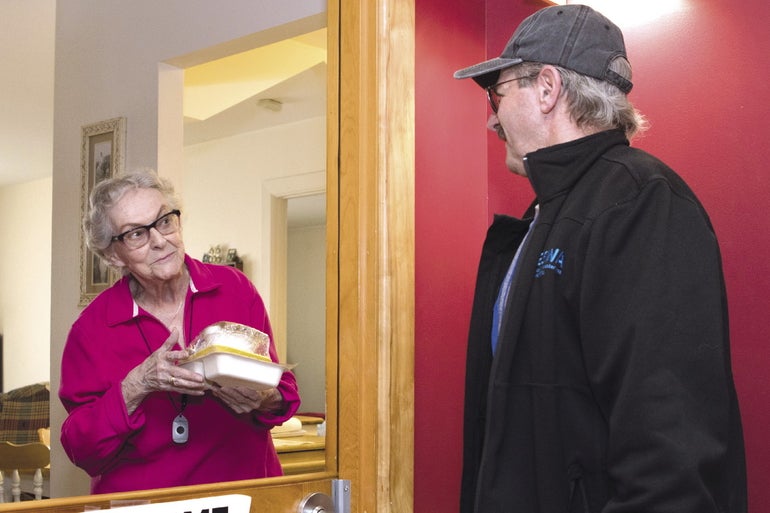Massachusetts is among a minority of states that does not require non-medical home care agencies or professionals to be licensed.
Get Instant Access to This Article
Subscribe to Worcester Business Journal and get immediate access to all of our subscriber-only content and much more.
- Critical Central Massachusetts business news updated daily.
- Immediate access to all subscriber-only content on our website.
- Bi-weekly print or digital editions of our award-winning publication.
- Special bonus issues like the WBJ Book of Lists.
- Exclusive ticket prize draws for our in-person events.
Click here to purchase a paywall bypass link for this article.
Home care providers, a union leader and even the top House Democrat on the committee hearing the pitch all agreed Monday that Massachusetts lawmakers should stand up a licensure process to oversee those who provide transportation, meal prep, and other services for seniors in need.
Massachusetts is among a minority of states that does not require non-medical home care agencies or professionals to be licensed. While many submit to industry accreditation instead, experts said the status quo leaves oversight gaps putting both consumers and caretakers at risk.
Jake Krilovich, executive director of the Home Care Alliance of Massachusetts, said he regularly tells prospective home care agency owners it's often easier to open a home care agency than it is a pizza shop in Massachusetts.
"You simply file with the secretary of state's office as a business, and then you're supposed to adhere to one or two [Department of Public Health] regulations when sending workers into an older adult's home, and then you can operate," Krilovich told lawmakers.
"Today, we have no idea how many home care agencies are operating in Massachusetts," he added. "If you ask any of our provider members, and two of them are here today, any of them can give you an example of an agency operating in the shadows or skirting these best practices, whether it's by failing to adhere to wage and labor laws, not carrying liability insurance, or not conducting background checks on workers. All of these things are things you would think are required of a provider who is caring for a person in their home."
Krilovich and a string of home care agency operators urged the Joint Committee on Aging and Independence to advance legislation to require the Executive Office of Health and Human Services to create a new home care licensure process.
The regulations would need to include background checks for workers, service plan standards, worker's compensation and liability insurance, training and competency standards for providers, and more, according to a House-produced summary. Officials would also craft fines and a process for suspending or revoking licenses.
A state task force in 2021 recommended creation of a licensure framework for home care agencies, highlighting policies in place in other states that Massachusetts could emulate. Members at the time warned of gaps in the current oversight of home care agencies.
"No state agency currently licenses home care agencies," the task force wrote. "While home care agencies that contract with ASAPs [aging services access points] are subject to contractual requirements and oversight by the ASAPs and the Executive Office of Elder Affairs, private home care agencies that do not contract with ASAPs are not subject to such requirements or oversight."
Earlier iterations of the bill won favorable reports from the former Elder Affairs Committee in each of the prior two sessions, but died in the House Ways and Means Committee without a vote in either chamber.
Rep. Thomas Stanley, who chairs the Aging and Independence Committee, said he and co-chair Sen. Patricia Jehlen had many meetings with advocates to work out differences with previous iterations of the legislation. Stanley called the latest version, which he and Jehlen filed, a very good bill.
In the past, Stanley said, the proposal had been held back by questions about the cost of the state launching a new licensure program. While he said Monday "we haven't got the answers" to that inquiry, he also suggested the landscape has shifted amid upheaval in Washington, D.C.
"Now we have bigger problems with losing our financial partner from the federal government," Stanley said. "It just adds to the point that we need services like this certified so that every consumer knows what they're getting. Everyone that I've talked to, whether it's administration or advocates or whomever, all agree that keeping people home costs the state a lot less money than having to go to assisted living or a long-term care facility."
In the absence of a licensure process, Krilovich said, the Home Care Alliance in 2010 created an accreditation process including standards for insurance coverage, training, and background screening.
"It's not often you have an industry coming to this body asking for itself to be regulated, and it's even more rare to see the industry alongside the union in support of a single bill, yet we believe in this initiative so deeply that we created our own accreditation standards in lieu of state licensure many years ago," he said.
Tim Foley, executive vice president of 1199 SEIU, voiced his union's support for the bill on his final day on the job. He described the legislation as really a consumer protection and worker protection bill.
"In the state of Massachusetts, we have a lot of standards that we put in place to ensure consumers know what they're purchasing, and this is just another example of that," Foley said. "If you were looking for health insurance, we have the stamp of approval that you meet some credible standards before you can offer that you're in health insurance and you should purchase that health insurance. We have a lot of standards in our nursing home spaces as well as our hospital spaces, and it feels critically important now, after hearing today that many other states have similar license processes in place, that we do that here as well."

